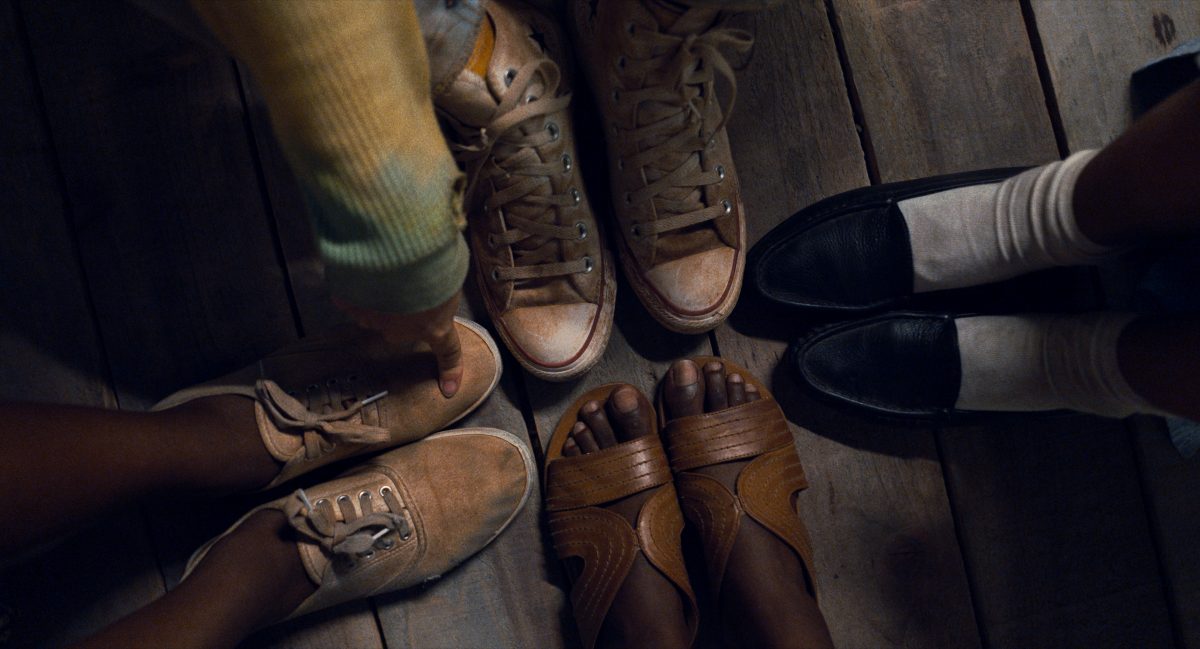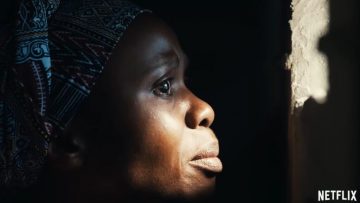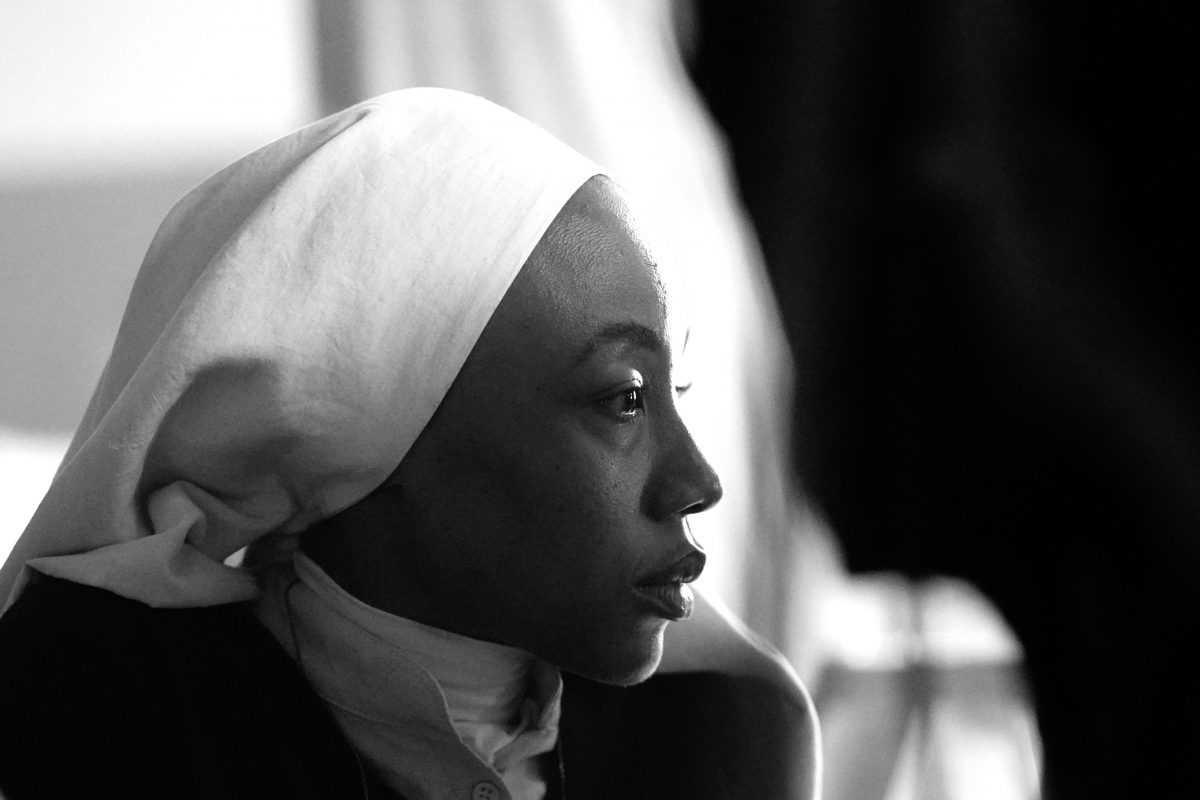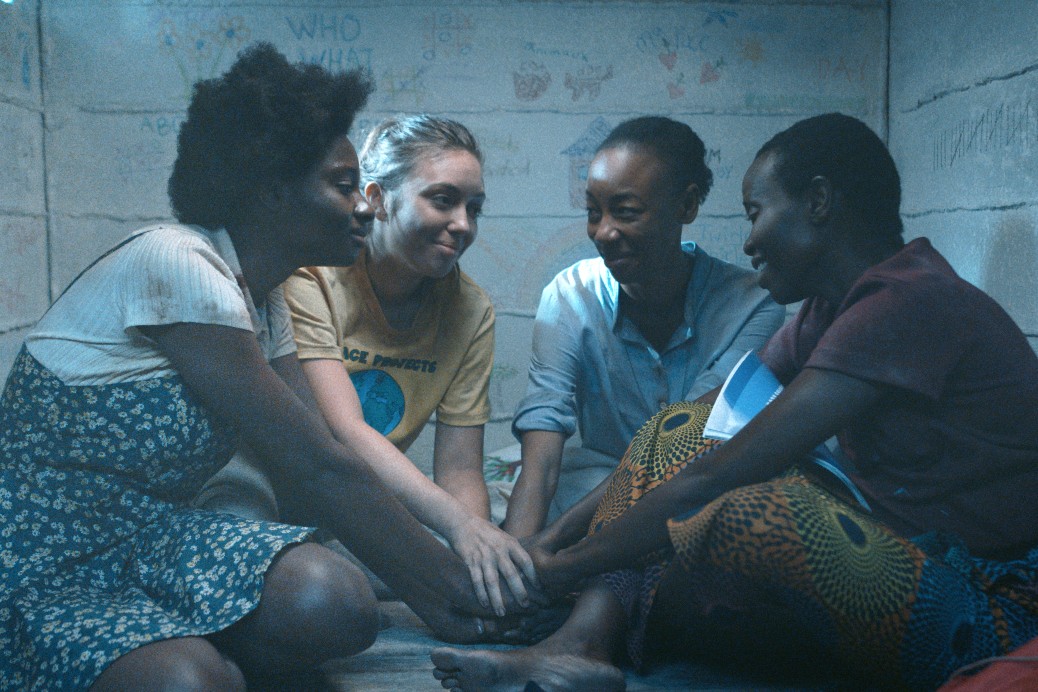Four women trapped in a food storage basement for 100 days watch the streets of Rwanda flow with blood, tears and sufferings as the Hutu militia group brutally murders men, children and (not to mention rapes) women from the Tutsi and moderate Hutu families in 1994.

Trees of Peace takes a look at one of history’s darkest moments; sending shivers down the spine. The Rwandan genocide – through the appalled eyes of four women.
If you haven’t heard of the harrowing and unsettling incidents that took place in Rwanda through films like Hotel Rwanda and Shooting Dogs, then Alanna Brown’s ‘Trees of Peace‘ can be more than just a good educational opportunity for you.
Throughout the movie, the audience is restricted to be in the shoes of these four women – Annick (Hutu), Mutesi (Tutsi), Jeanette (Tutsi) and Peyton (American) – who are confined to the four walls of a storage basement with a small window that allows them to see the destruction of their homes and longing spirit.
The movie drags you into the unknown depths of war, and the only way we gain clarity is through the lived experiences of these women.
Annick – a Beacon of Hope

For those of you who don’t know, the Rwandan genocide saw over a million Tutsi people murdered by the Hutus, often with machetes. But the catch is – not all Hutus were murderers. This is why Annick’s (played by Eliane Umuhire) storyline is extremely empowering.
Despite being in hiding as a Hutu woman and knowing that her beloved husband (moderate Hute) is exposed, helping other moderate families in danger, Annick never loses hope.

What’s worse and can make some viewers claustrophobic and downright frightened is the fact that the basement remains shut throughout the length of the film unless someone opened it from the outside. This means if they were captured, there was nowhere to escape.
Imagine having the guts to not only trust (on her husband) but have the courage within self to carry a child in her womb?
That’s Annick for you.
She offers to foster strangers in her basement and bears no animosity to Mutesi and her seething bitterness towards the Hutus. She has also suffered multiple miscarriages in the past, but that doesn’t make Annick doubt the beauty of life.
In fact, she’s never one to make a negative remark about other ethnicities or indulge in an action that works against the interests of the quartet. As a viewer, you feel nothing but an immense amount of respect and gratitude towards Annick who knows only to retaliate with love.
Quite the opposite to the world around them that was filled with incomprehensible manslaughter.
Mutesi – A Naïve yet Troubled Adult
While Annick comes across as a silver lining, Mutesi (played by Bola Koleosho) is like an arrow, ready to pop your comfort bubble and give viewers a taste of reality.
Being a Tutsi woman and a victim of sexual abuse as a child, Mutesi is at light speed when it comes to judging and pointing fingers at others to prove her own righteousness. There are several instances in the film where her comments and accusations on Annick being a Hutu are certain to get on your nerves. However, you gradually tend to realize that this is the classic behavior of being defensive to cope with the massacre that was taking place.
A blame game to resolve the insurmountable problem before them.
https://www.imdb.com/video/vi294240793/?playlistId=nm9074654?ref_=ext_shr_lnk
The most beautiful scene in the film (my favorite, without doubt) has to be Mutesi joining the sister gang before the big climax. As the group starts to form deeper connections and share their most intricate and darkest secrets, they also learn to accept the fact that not everyone’s perfect. They all bond over one thing, a children’s poem book titled Seeds of Love to keep their mind and soul at peace. This is where we see someone like Mutesi, who’s always on edge, let her guard down and appreciate the support around her.
Jeanette – to be a nun or not to be?
A nun is someone who is true to God. But it doesn’t stop there. Nuns have been for long portrayed as the ‘perfect role model’. The one who never steals, the one who doesn’t judge or the one who always forgives. We see Jeanette (played by Charmaine Bingwa) go through a roller coaster of emotions to be that ideal nun.
What we see as the movie evolves is, Jeanette sheds her typical ‘Catholic woman’ skin to really show hypocrisy. That’s quite the standout in this film. It really makes you wonder how much can war change someone.

Breaking out of character, as they called it, somewhat feels right even in Jeanette’s case since no one can really stay true to their emotions amid a genocide. There are moments where Jeanette steals snacks from Peyton’s bag when she’s hungry, she judges Peyton when she confesses her sin and even shows anger toward Mutesi. As a viewer, it was simply satisfying to watch a nun live those vivid moments as a human being rather than a divine, forgiving personality.
Peyton – an Opportunity to Wash off Her Sin?
Last but not least, I saved Peyton (played by Ella Cannon) for the last since her presence at that time in Rwanda was quite unusual.

As an American peace volunteer, Peyton initially claims to have come to teach English to the young minds at Rwanda, however the real reason she chose to be the ‘peace warrior’ was due to a heartbreaking back story that involved the death of her dear brother. Once she shares her story, and the internal grief she tries to combat every, rising day, the other women come forward with their sufferings and find place in their heart to connect.
Not to forget that the heart-to-heart connection was not instant but rather a dreaded process.
Despite not getting the opportunity to fulfill her role in Rwanda, she finds solace in teaching English to her mates in the basement.
Climax was about the end (of the war) and the Beginning of Sisterhood
Trees of Peace will not only have you glued to your screen, but will make you rejoice on the miniscule moments of happiness these women experience. Not just that, you tend to join in on their journey of endurance as they fight each day – amongst themselves and as the horrors of humanity takes place – to ultimately keep each other sane and strong.

Even during moments where you need to hold on to your breath, you start to notice that you’re rooting for the women to emerge victorious from their hiding, and start to count the days on the calendar for this atrocity to be over.
At the end of the film, you almost feel like you were rescued along with these four women, and that’s why Trees of Peace is an applaud-worthy survival story you can hold on to.
Subscribe to FIB’s Weekly Breaking News Report for your weekly dose of music, fashion and pop culture news!







